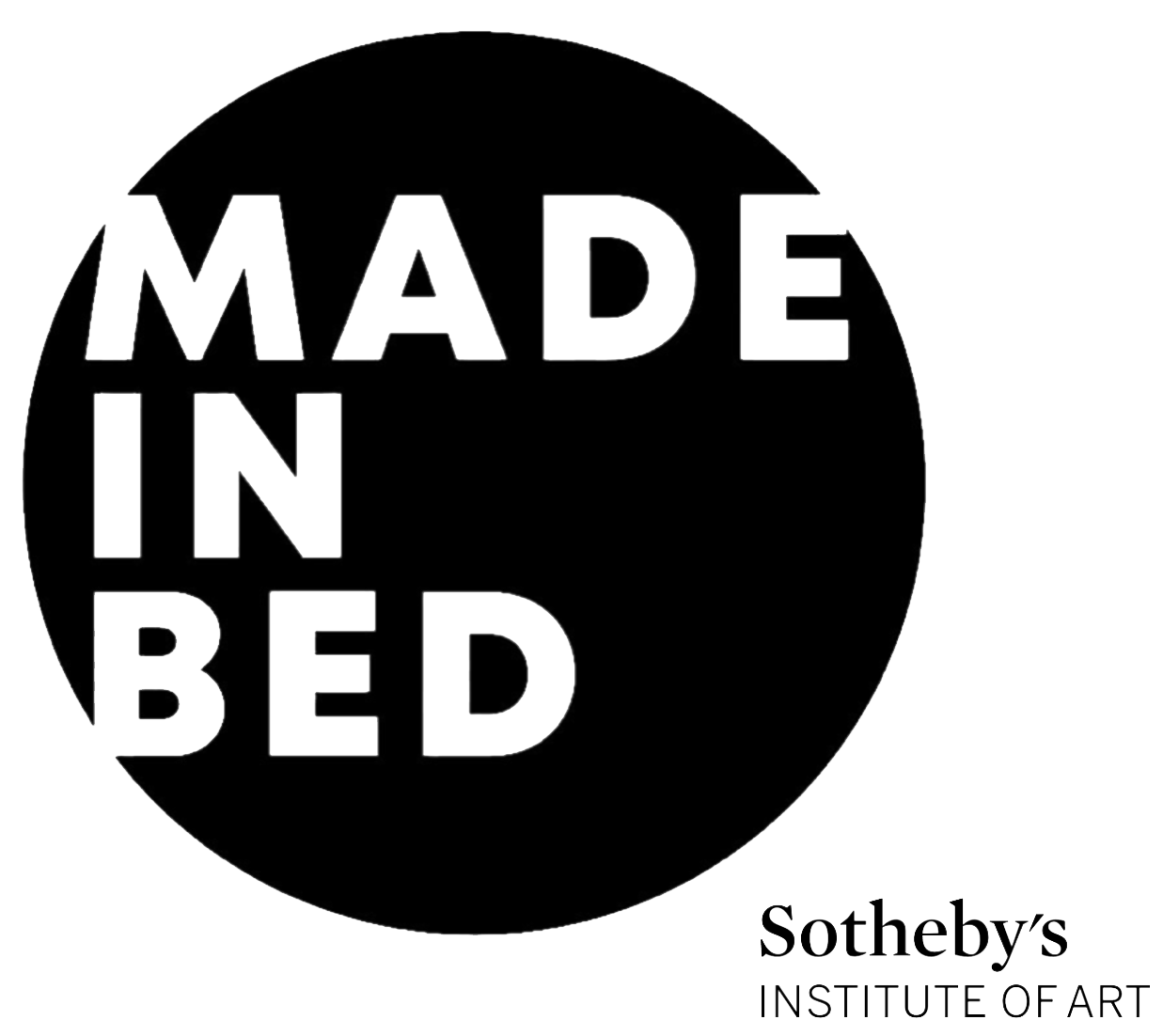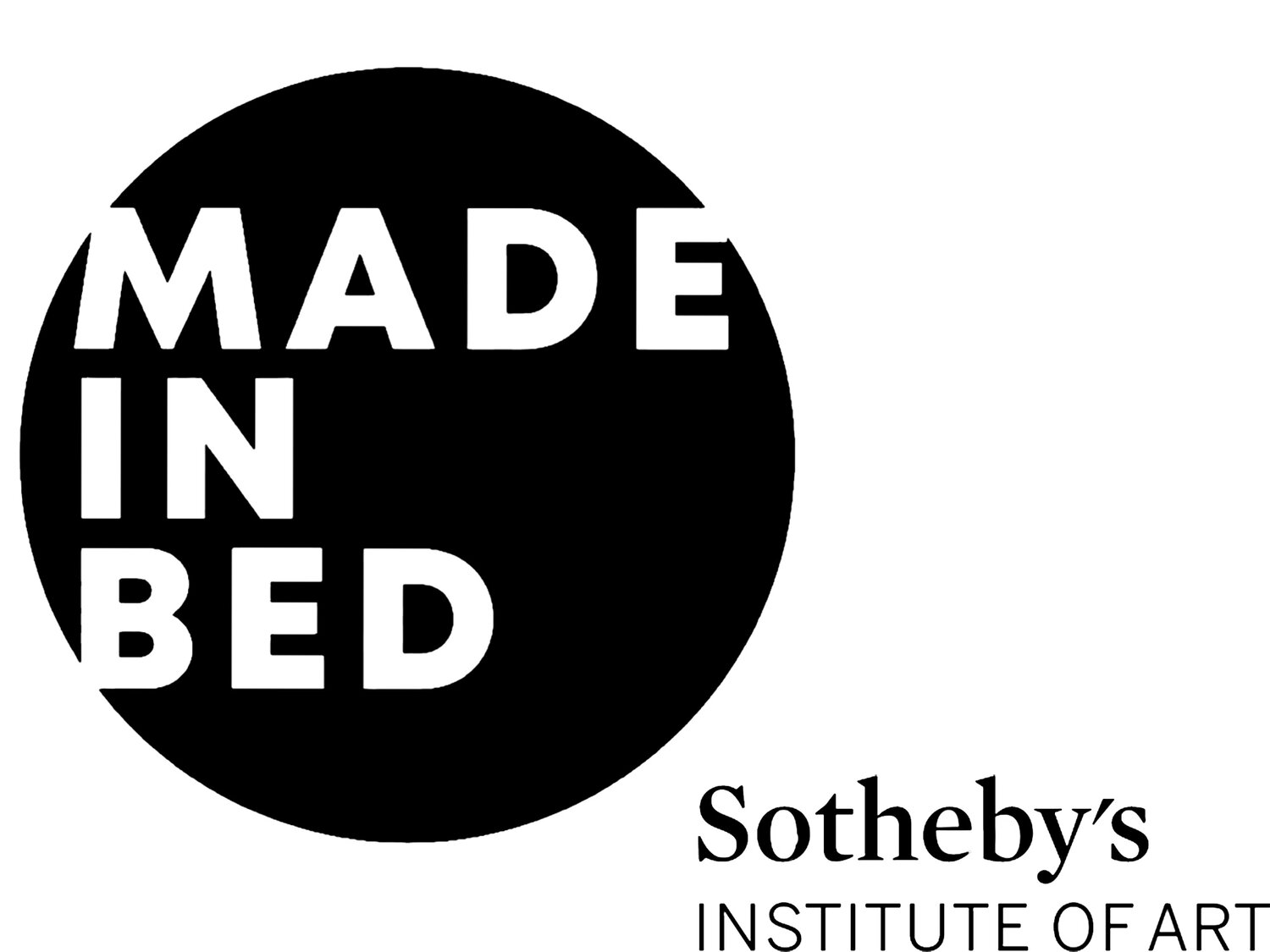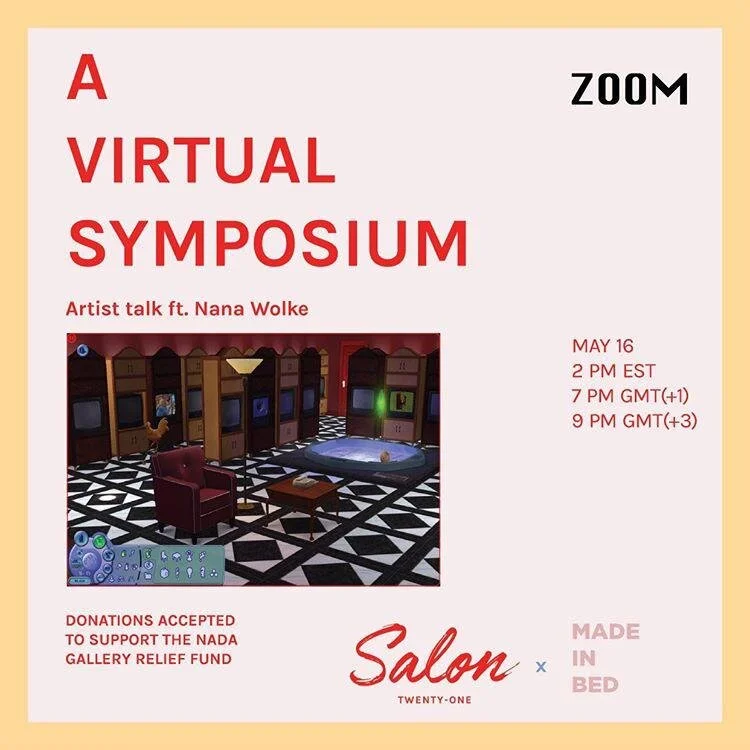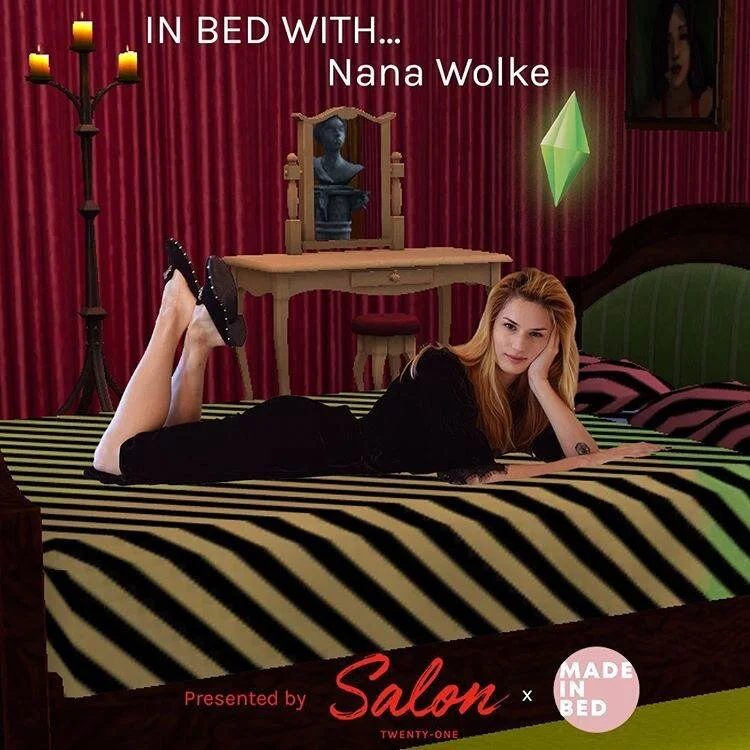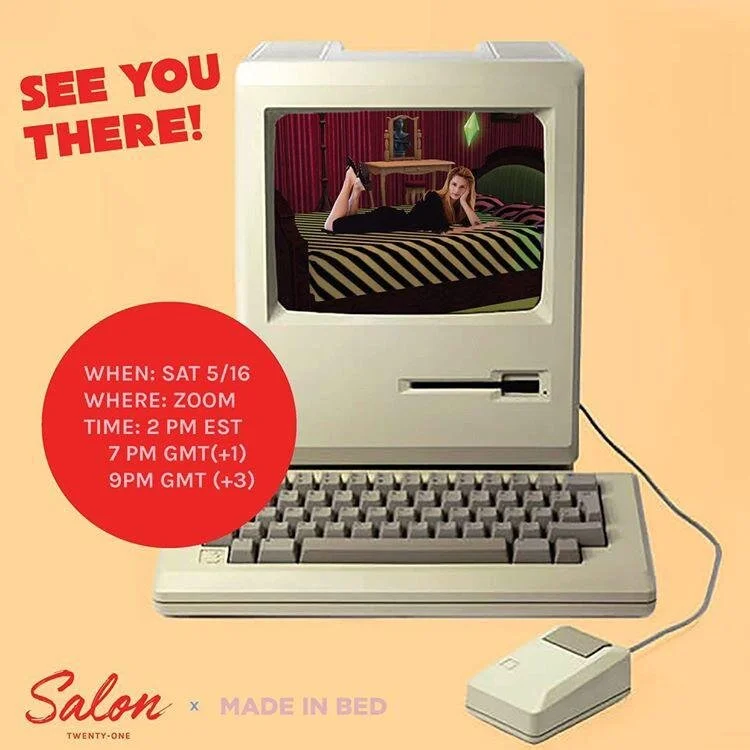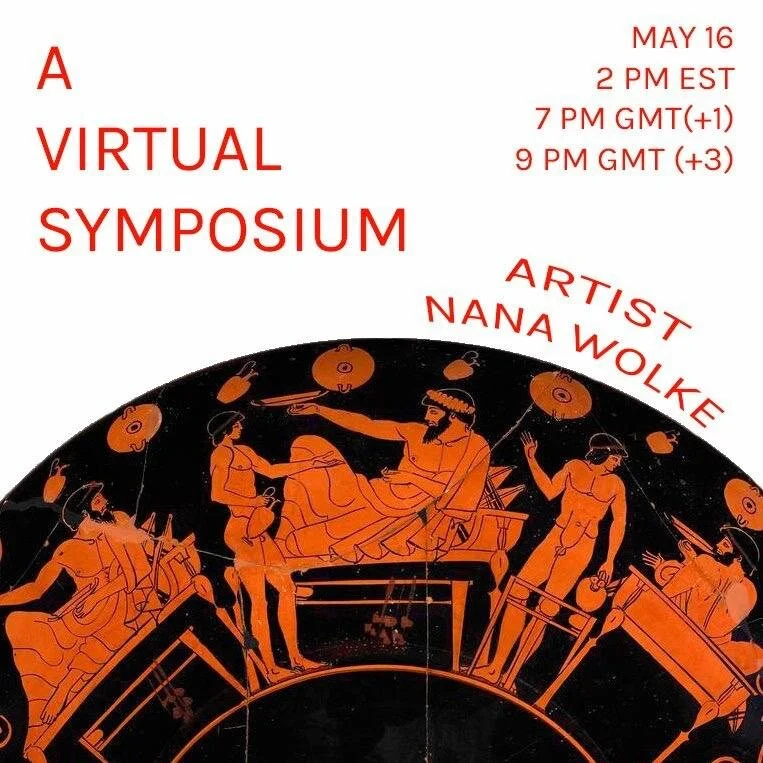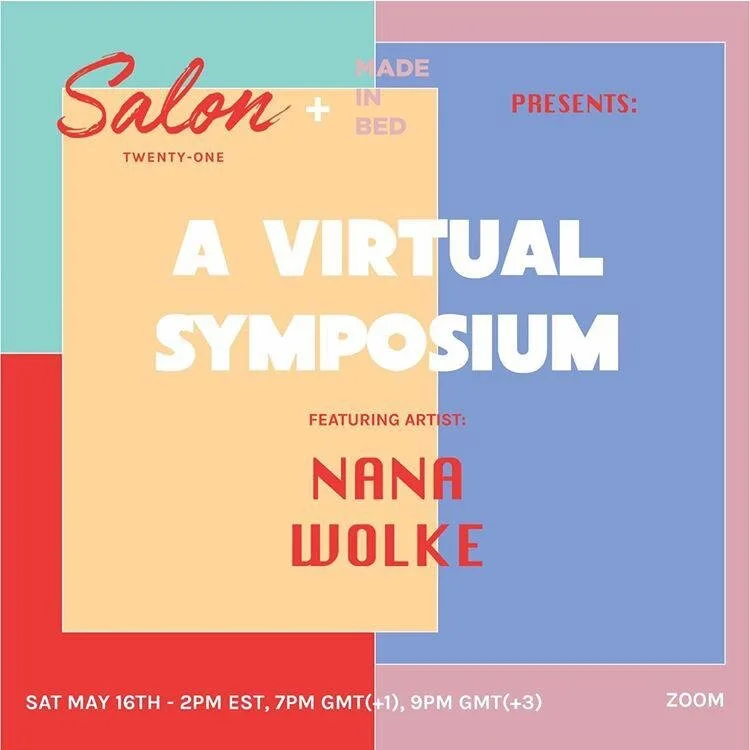Lorna Tiller in Conversation with Alex Bass, Salon 21
In recognition of the global pandemic MADE IN BED has been actively collaborating with creatives across the globe. We aim to expand the MIB community and contribute to the exponential shift in attitude we can observe as the world begins to communicate online. Lorna Tiller, MADE IN BED editor-in-chief, interviews Alex Bass, founder of Salon 21, in time for our joint venture this Saturday, May 16.
Salon 21 Presents: A Virtual Symposium - An Artist Talk featuring Nana Wolke
Alex Bass, Sims Set. © Nana Wolke
Reaching across the globe, from New York (Salon 21 HQ) to London (MADE IN BED HQ) to Athens (Nana's quarantine studio), we are excited to engage with you through Zoom to talk about the state of the arts during COVID-19 and present an emerging artist — Nana Wolke (b.1994, Ljubljana). MADE IN BED has gotten together with Alex Bass to have an informal conversation about the project, why it’s important, and how you can be involved.
Can you tell us a little bit about what Salon 21 is? Why you started Salon 21? What was your goal?
Roughly two years ago, I founded Salon 21 to fill a void in the social experiences available to both my demographic and those of a similar age group. Focused in and around the New York area, Salon 21 began to initiate several alternative social activities. These events combined socialising and networking with an educational purpose, where attendees could learn about new forms of art by my artist friends producing work across the city in different art schools. I have since expanded my social circles and look to support my friends across the globe, including London’s Goldsmiths. I aim to provide a platform for emerging artists who would perhaps not have the opportunity to showcase their work in other settings.
The name “Salon 21” speaks to the historic French salons of the 18th century, in which influential aristocrats would gather in the salon — aka the living room — to discuss fashions, trends, politics, social issues of the time, etc. Additionally, it references the academic salons, which showcased the contemporary art of the time, as we aim to do. The number “21” is about bringing this type of social gathering into the 21st century. This contemporary twist allows us to mimic this mode of exchange while keeping it relevant to our demographic now.
Salon 21’s goal is to promote emerging artists and help them to create art as a living. It is tough to penetrate the hierarchical social circles that dominate the art world. I am also interested in alternative contemporary spaces that allow the discovery of new art. Salon 21 events are held in spaces that offer more to the eye than the white-wash gallery aesthetic we are used to; this environmental decision was made to encourage attendees to engage and feel more comfortable in these spaces.
Now with COVID-19, Salon 21 is trying to create a community that can engage through virtual activities, in which you can take an hour or so of your day to enjoy an educational arts and cultural experience and learn something new.
Coming from London to New York, Alex credit’s her time at Columbia University, NYC, for creating her global network. I asked Alex how she met Nana Wolke? And what she loves about her art?
Through a mutual friend at Columbia, I met Nana Wolke at a dinner party. This casual and organic growth of social nexus is mimics the environment I want to curate at Salon 21. Nana is working at Goldsmiths completing her MFA, and I am at Sotheby’s Institute of Art, so naturally, the friendship blossomed. Nana invited me to her studio to see her work and spoke to me about her artistic process — something you will all get to hear about this Saturday, May 16. As soon as we started to talk about art, everything just fell into place!
All of Nana’s works I have seen are interrelated, and this is something I love. For example, playing with domestic objects and all the different ways we can interoperate their objective functions. Moreover, the “Sims” series is really topical; through her virtual worlds, Nana critiques the domestic sphere which we are currently trapped in, not the one we choose to live in. Nana explores how we mentally and physically exist in these domestic spaces. Utilising the retro-quality of a life simulator game that many of us have played, the Sims medium is nostalgic, and speaks to creativity only experienced in the virtual world. The experience of building your own Sims environments creates a complex relationship with our situation right now. The wires and nuances surrounding this project are very interesting, and it is accessible.
Coming from an art historical background at Columbia where I studied mostly the Old Masters or Impressionists, breaking into the contemporary art scene has been a challenge. I am able to apply my background knowledge and experiences when interpreting these works, but I often find my gripe lies with their inaccessibility. I began Salon 21 as I was fed up with seeing contemporary art being created that I felt was 1. Too conceptual and not accessible, and 2. Too commercial. I love emerging artists, not the Koons’s or the Hirst’s of our time, but the art students who are engaging with social issues and relating back to their relationship with art in a way that feels genuine and groundbreaking.
What is your relationship to NADA (The New Art Dealers Alliance) Gallery Relief Fund? Why did you select this fund?
Nana introduced me to the New Art Dealers Alliance Gallery Relief Fund, and it was a perfect fit. Looking to partner with a non-profits is something Salon 21 tries to do for all our events in line with our initiative to support emerging artists. To make this relevant to what is happening with the COVID-19 crisis, NADA started their relief fund as a 'side part' of their non-profit to specifically help artists who are in crisis at this time, similar to what we’re trying to do. For each of our previous events, we have donated a large percentage of our ticket and art sales to support these types of organisations.
When choosing a non-profit to work with, I think it is essential to pick something close to home, so people understand where their money is going. It is harder to get people to engage with large-scale philanthropies, and personally, it is far more impactful to make a bigger splash in a smaller environment. It is easier to partner with a small non-profit as you can see where your donations go and what difference you are making.
Are you excited about doing a virtual event? Are there positives or drawbacks to this model?
Salon 21 was arguably set up with an ‘anti-digital’ mantra because of our emphasis on physical connectivity — which is pretty ironic now that we are switching to this form of communication. I felt that physical spaces were essential for sharing, socialising, understanding the artists’ work but, alas, I am having to rethink this concept with all that we are going through. It has been a new opportunity for the whole art world, not just Salon 21, to keep engagement at the highest possible level. What the art world is trying to do across the board (museums, galleries, art fairs, MADE IN BED, Salon 21) is all experimental, and even before the current crisis, there were some sectors in the art world setting up a strong digital infrastructure. We are excited to see the results of our first virtual artist talk and build from there.
I am excited to try out a new platform and receive feedback! Truthfully, we all hope to go back to real physical interaction, but, in the meantime, it is brilliant that we have these forms of communication to rely on in the meantime. I am enthusiastic about Salon 21 Presents: A Virtual Symposium - An Artist Talk featuring Nana Wolke and can't wait to see the amount of engagement we get, and hope to reach even more people across the globe in this way.
Thank you, Alex.
Lorna Tiller,
Editor-in-Chief, MADE IN BED
